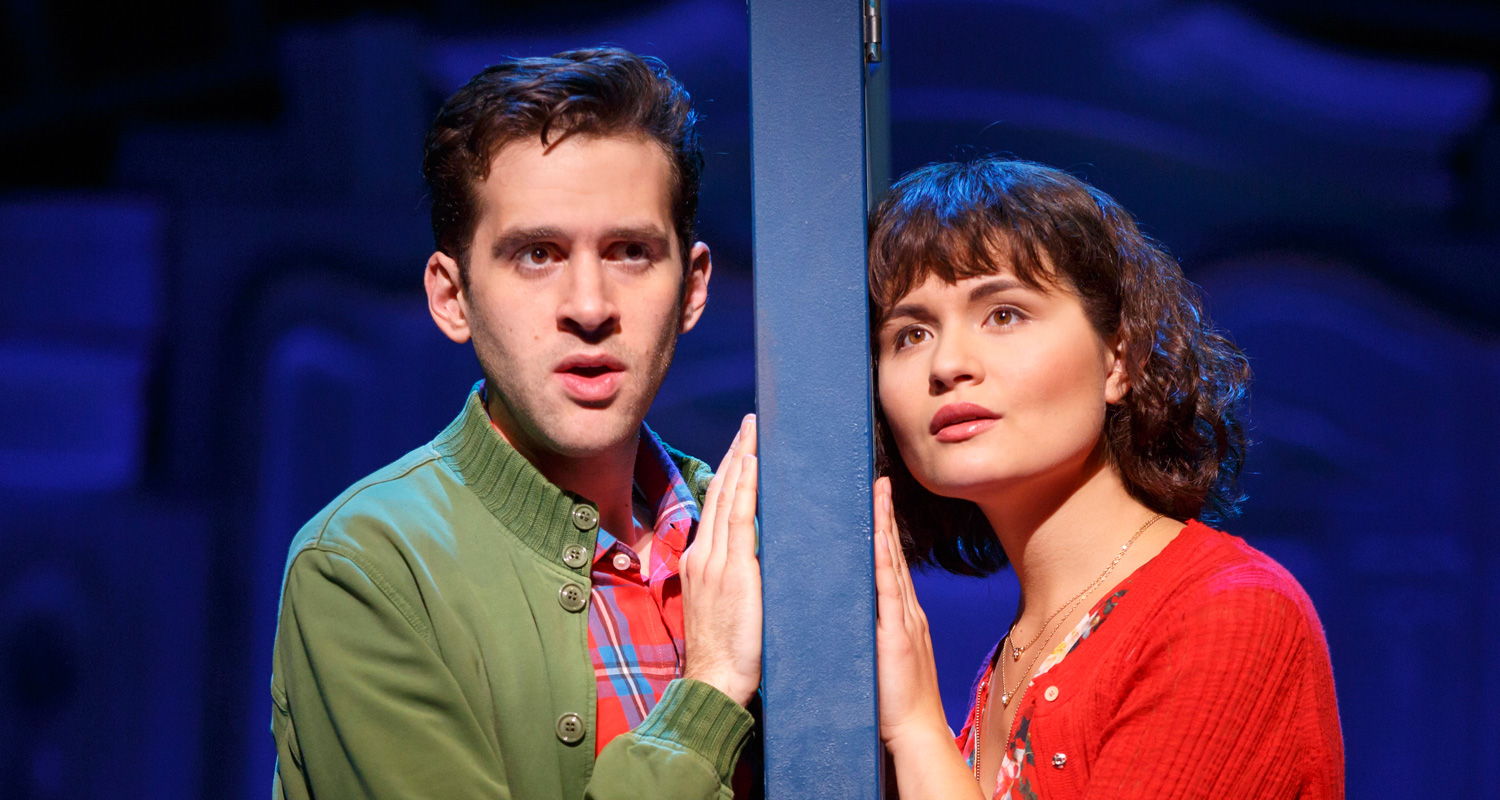
Readers of the blog may be familiar with the 2001 French film Amélie, an indie love story powered by actor Audrey Tautou’s impish smile and director Jean-Pierre Jeunet’s whimsical storytelling. It’s on Netflix right now–if you’ve got time this week, put the kids to bed, snuggle up with a loved one, pop open a bottle of wine, and enjoy a bit of that inimitable French joie de vivre.
Once you’ve caught up by seeing the movie, you can join the rest of the viewers in confusion over the reality that Amélie is now a musical. Attendees at last week’s NYC conference could have taken the N train to Midtown and seen Amélie on Broadway. That’s what my wife and I did, and frankly, half the reason we went was curiosity. Why in the world would someone turn that movie into a musical? We expected the whimsy and fun of the movie, but we weren’t expecting an on-the-nose parable story of how love and control cannot coexist. Alerte spoil!
https://youtu.be/OSW6UOHU9Wc?t=1m34s
A few starting notes: the show’s music is completely original, so don’t go in expecting the dreamy, swaying, carnival soundtrack from the film. But most of the films memorable moments are still here: Zorro mask, the Travelocity gnome, the R-rated jokes, the photo booth romance. One of the big differences that drives the musical (not the film) is the relationship between Amélie and her parents. In the opening sequence (“World Best Dad, World’s Best Friend, World’s Best Mom”), Amélie’s parents are presented as control freaks, giving her daily health checkups, taking away her pet goldfish, and isolating her from the outside world. While the film posits that Amélie’s childhood is the foundation for her quirkiness, the musical paints Amélie’s childhood, marked by fear and isolation, as an obstacle to overcome.
It’s that control-freak nature that Amélie brings with her as she relocates to Paris and begins serving in a cafe. She finds a tin of toys hidden away in her apartment, and in a moment of inspiration, works to track down the now-grown adult and return to him this lost piece of childhood. Under the cloak of anonymity, she watches as her gift to the man heals the broken relationship he has with his wife and son. Emboldened by this adventure, she similarly works to bless the hard lives of her cafe compatriots: a frustrated poet, a bitter widow, a hypochondriac, a woman hater, a corner store employee, a reclusive artist, and eventually, her own grieving father.
In all these cases, Amélie avoids the spotlight, carefully arranging these healing interventions without being discovered. The characters of Amélie’s childhood and mother reappear on stage, reminding her never to get too close to anyone (“Halfway to Go”). When she comes across love interest Nino’s art book, she similarly works to establish an anonymous trail of breadcrumbs to keep romance at bay. As one might imagine, it doesn’t work.
The music hits its final stride with the song “Stay.” Nino has found Amélie’s apartment, and is standing outside the door. The audience sees their interaction from the side, as the two sing to each other from opposite sides of closed the door. The clip above is a part of the song, unstaged. Here are the lyrics:
[AMÉLIE]
Stay where you are!
Safe in a frame
Try to move closer, you’ll only get halfway!
Pin down your heart, put out the flame
Don’t come any closer[AMÉLIE & NINO]
But don’t move away!
It’s beautiful stuff. Amélie is caught in a strange place because she’s tried so hard to give love and put up barriers to avoid receiving it in return. She’s learning that love cannot be anonymous. It has to come from somewhere, or else it’s just luck. Torn between her upbringing and her new life, she tries hard to control the whole experience: “don’t come any closer, but don’t move away” she sings to/with Nino from behind a closed door. Bravely, she lets Nino in, through the door and into her life. She discovers that she too needed the same sort of healing that she had secretly been delivering to everyone else.
Which is to say, Amélie’s lesson of love is universally true, in relationships and religion. Love has fingerprints. By definition, it can’t anonymous. When God finds your apartment (“Behold! I stand at the door and knock!”), there’s no way to control what happens next. It’s a scary thing! Ask the disciples- they kept the door locked, but that didn’t stop Jesus from entering. Amélie is a musical of whimsy, but don’t let the cuteness fool you. We’re just as likely to need the same healing lesson she did, that receiving an uncontrollable love is as important as giving it. If it’s still on Broadway for #mbird2018, the rush tickets are very affordable. Don’t expect the movie, but expect a good time!

COMMENTS
Leave a Reply












